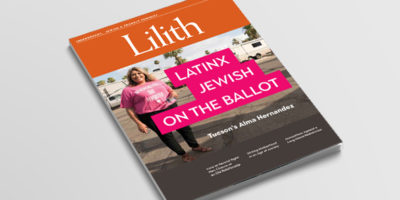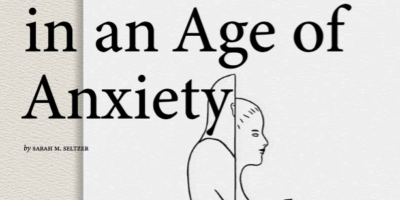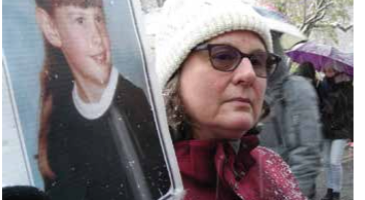The Old Age of Youth
There Are No Grown-Ups: A Midlife Coming-Of-Age Story by Pamela Druckerman (Penguin, $27.00) is something of an unintentional cautionary tale—especially if you are in, as I am, what is apparently “middle age.”
The book opens with an anecdote of the way things appear, as opposed to the way things are: “If you want to know how old you look, just walk into a French café. It’s like a public referendum on your face.” Waiters call you “mademoiselle,” she writes, until you hit 40, at which point there has apparently been some closed-door meeting at which they have decided to call you “madame.” “Strangers no longer gush about how young I look, or seem shocked when I reveal that I have three children,” she writes. As someone who used to have a “baby face” and is now the mother of six, I can attest to this as well: it is called The Passage of Time. And it’s okay. But Druckerman feels much more unsettled by this passage of time, and what it has to say to her about her own role in the world: “What unsettles me most about becoming ‘madame’ is the implication that I’m now a grownup myself. I feel like I’ve been promoted beyond my competence.” (This is only a few pages after she says that when she acts “adorably naïve now, people aren’t charmed anymore, they’re baffled.”)
There is something inherently strange about reading a book in which someone bemoans becoming age 40, or—as Victor Hugo allegedly said—“the old age of youth.” Because, truly, don’t all of us know many people who didn’t get the privilege of reaching that age? Aren’t a few crow’s feet and some cellulite an acceptable tax to bear in return for the idea that we are actually around to witness risings and settings of the sun, unlike friends and family members who are now, sadly, six feet under? “If we could ever run like a gazelle, that ability evaporates by our forties. ‘Now it’s impossible to go that fast, no matter how hard I try’, says a fit 42-year-old who’s been a recreational runner for decades.” For those of us who have never run in anything but fear, this seems like a small price to pay for the joy of being alive.
Or is it? Because in the aggregate, it’s more than just the sense of lost physicality: Druckerman wants to rage, rage against the dying of the “light”—the light being that sense of possibility and hope ever-present in youth that takes active nurturing as we get older, more experienced and less naïve. Some of us get that sense of joy from unusual experiences, like skydiving, safaris in Botswana or, if you are Druckerman, deciding to give your husband a ménage à trois for his 40th birthday. One night before bed, she asks her husband if he wants a watch for his upcoming birthday: “He balks, and says that what he really wants for his birthday isn’t a good, it’s a service: a threesome with me and another woman.” This conversation goes in a very different direction than it would have in, say, my home, and Druckerman gets to work planning the sexual escapade (sexcapade?). Maybe it’s easier to plan something like that in Paris—I mean, even “ménage à trois” is French—but it all works out and seems to have no adverse impact on their marriage (Again: French.)
When she discovers she has non-Hodgkin’s lymphoma, and goes through chemotherapy, she arrives into the world of complete remission, thankfully—she says she is “calm, and grateful for my life, and wanting it all even more.” She seems genuinely surprised that she no longer takes her husband’s opinions as gospel, but rather has her own perspectives and ideas: she finds her husband “less like someone with a direct line to Platonic truth and more like an intelligent person with a particular point of view.” The concept of being an intelligent person with a particular point of view, she says both implicitly and explicitly, is something to which we can all happily aspire in our forties, unencumbered by any expectations other than those we place upon ourselves, and unlimited by anything but our time left on this earth. I find I enjoy Druckerman’s ruminations on this idea much more than, say, the chapter on how to shop for a forty-something woman. To me, much more than all the talk of jeans sizes and facial hair, that intellectual independence which can still have the fierce fire of youth is the true surprise, and joy, of “growing up.” JORDANA HORN is a contributing editor at Kveller.com and freelance journalist.




